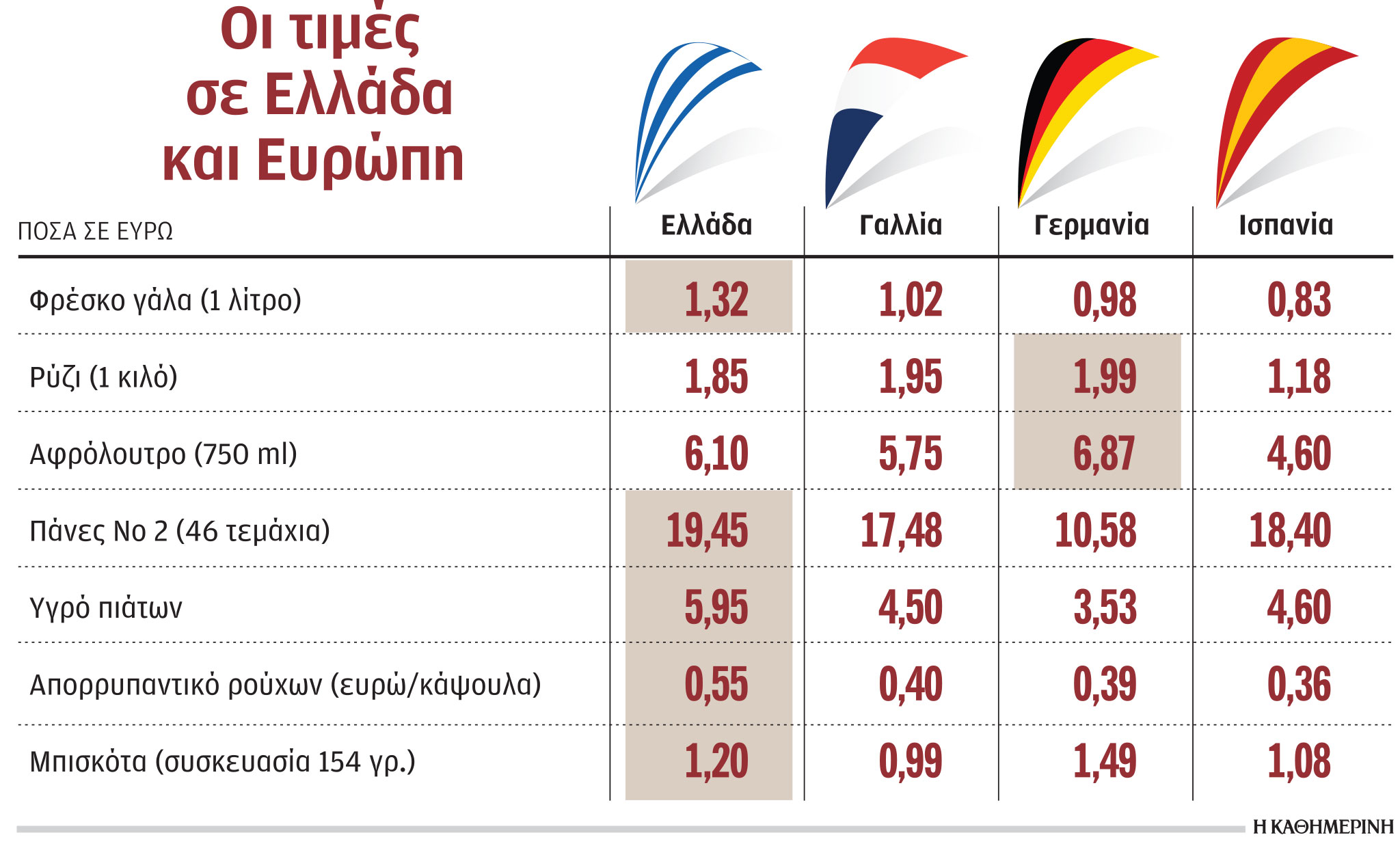
Greece may have had a lower reading in October inflation from Germany, maybe in Greece we make famous “baskets» for offering the consumer cheap solutions, but we still pay much more for the simplest products than consumers in other European countries.
So fresh milk, whatever it is own brand and where most of the chains are marked Supermarket The surname was preferred to be put in “home baskets”, it is still more expensive in Greece than in Germany and Spain, but even more than in France, a country with a much higher per capita income. Thus, the average price of fresh milk in Greece is 1.32 euros/liter, while in Germany it is 0.98 euros/liter, in France 1.02 euros/liter, in Spain only 0.83 euros/liter, in neighboring Italy 1.19 euros/litre, Belgium 0.95 euros/litre and the Netherlands, where inflation has reached the “red” level, 1.01 euros/litre. And it can of course be argued that most of the above countries have large milk production, but even there farmers have paid much higher energy and feed costs in recent months.
Expensive, especially based on disposable income, pay Greek consumers and one more product, which is also included in the “household basket”. The average price per kilogram of rice in Greece is 1.85 euros, i.e. slightly cheaper than prices in Germany (1.99 euros) and France (1.95 euros) and certainly more expensive than in Spain (1.18 euros).
Unfortunately, the rest of the situation is not much better. main subjects households in the category of non-food products, such as personal hygiene and care products, and detergents. Branded bath foam of a large multinational (750 ml package) in Greece is sold at a price of 6.10 euros, in Spain 4.60 euros, in France 5.75 euros. The well-known liquid dishwashing detergent is sold for 5.95 euros/litre in Greece, 3.53 euros/litre in Germany, and 4.60 euros/litre in Spain.
Why are the prices of basic goods higher in Greece?
The situation is similar with washing powders. The price of a capsule (for a washing machine) is €0.55 in Greece, €0.40 in France, €0.39 in Germany and €0.36 in Spain.
Extremely difficult for families with infants, as diapers and infant formula are still at the luxury level. For a pack of #2 diapers from a very popular brand, consumers in Greece pay €19.45 (a pack of 46) or €0.42 each, compared to €10.58 in Germany, €17.48 in France and €18 in Spain. .40 euros. .
For a package of cookies, one of the most famous in the world, consumers pay 1.20 euros in Greece, 1.08 euros in Spain, 1.49 euros in Germany and only 0.99 euros in France.
What are the above differences? First, several European countries have factories of multinational corporations for the production of basic consumer goods, much more than in Greece. Secondly, the size of the Greek market is de facto small, which does not contribute to the existence of a very low rate of return. Thirdly, nominal prices in Greece are holding at a very high level as chains continue to attract buyers with offers. Finally, in countries such as Germany and Spain, the supermarket sector is largely controlled by discount chains, forcing others to cut prices.
Source: Kathimerini
Lori Barajas is an accomplished journalist, known for her insightful and thought-provoking writing on economy. She currently works as a writer at 247 news reel. With a passion for understanding the economy, Lori’s writing delves deep into the financial issues that matter most, providing readers with a unique perspective on current events.